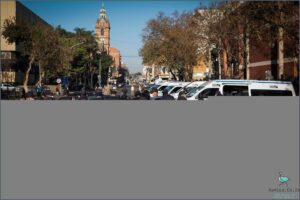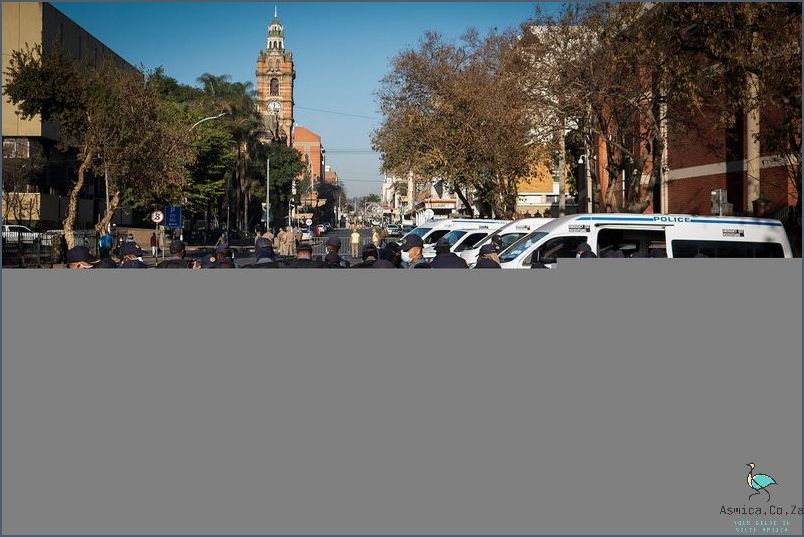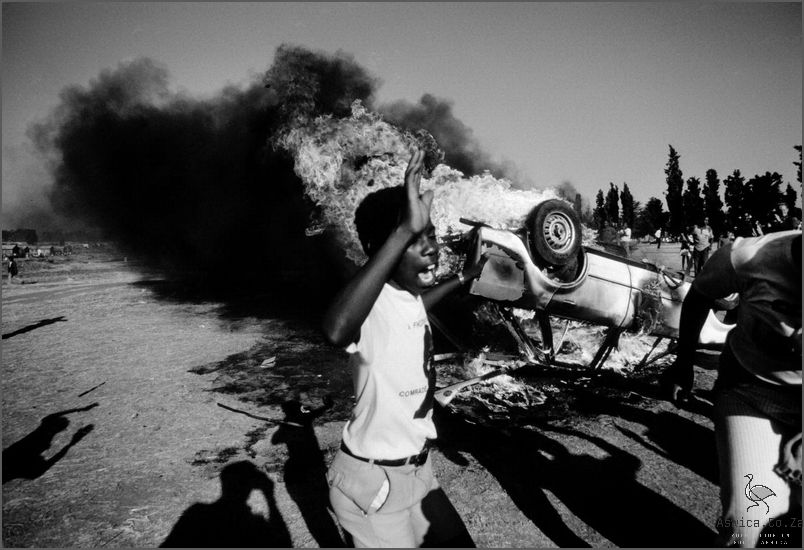
The South Africa Riots of the 1980s were a series of violent protests that began in response to the apartheid government’s oppressive policies. The protests began in the mid-1980s and quickly spread throughout the country. The majority of the protests were led by the African National Congress (ANC), which had been banned in 1960. The protests were largely peaceful and focused on civil rights issues, although there were some acts of violence. The protests were part of a larger effort to bring an end to apartheid and to secure civil rights for all South Africans. The protests eventually led to the end of apartheid in 1994 and the election of Nelson Mandela as the first democratically elected president of South Africa. The legacy of the South Africa Riots of the 1980s still resonates today, as South Africa continues to work towards racial equality and a more just society.
Contents
South Africa Riots 1980s
In the 1980s, South Africa was a nation in crisis. Racial tensions had been high for decades, and by the early 1980s, public protests and riots had become commonplace. In 1984, a nationwide state of emergency was declared to clamp down on dissent. The emergency lasted until 1986, during which time police and military forces brutally suppressed public protests. The riots of the 1980s were a direct response to the racial inequalities and injustices that had been imposed by the apartheid system, and they served to further galvanise the international movement against it. The decade saw a dramatic increase in economic sanctions, boycotts, and divestment campaigns against South Africa, which eventually led to the end of apartheid in the early 1990s.
Overview of the Apartheid Regime
The 1980s were a tumultuous time for South Africa, as the country was ruled by a brutal apartheid regime. This system of racial segregation and oppression defined life in the country for decades, and it is no wonder that it sparked riots and uprisings throughout the decade. The apartheid regime was a system of racial segregation and oppression that was legally enforced in South Africa from 1948 until it was abolished in 1991. The purpose of the apartheid regime was to give the minority white population complete control over the majority black population. Under this system, blacks were denied basic rights, such as the right to vote, and were forced to live in separate areas from whites. The apartheid regime was extremely oppressive and violated fundamental human rights.
The South African government implemented various laws to enforce the apartheid system, and these laws were met with widespread opposition throughout the decade. In the early 1980s, protests and riots began to break out throughout the country as people resisted the oppressive nature of the apartheid regime. These protests were met with violence from the police and military, and many people were killed or injured in the clashes. The most famous of these protests was the Soweto Uprising, which occurred in June of 1976. During the Soweto Uprising, students turned out to protest the government’s decision to impose Afrikaans as the language of instruction in schools. The protests quickly turned violent, and the police responded with lethal force. The Soweto Uprising was a major turning point in the struggle against apartheid and helped to galvanize the anti-apartheid movement.
Throughout the 1980s, the anti-apartheid movement continued to gain momentum, and more and more people began to oppose the oppressive system. This opposition soon grew into a full-blown revolt, with riots and protests occurring throughout the country. In some cases, the anti-apartheid protests turned into full-scale armed conflicts. In the late 1980s, the struggle against apartheid reached a fever pitch, and the government was eventually forced to negotiate with the African National Congress, the main opposition party. In 1991, the apartheid system was abolished, and South Africa began the long process of healing from decades of oppression and racism.

The 1980s were a tumultuous time for South Africa, and the fight against the apartheid regime was one of the defining events of the decade. Although the struggle for freedom and justice was long and difficult, the protests of the 1980s ultimately led to the end of the apartheid system. The South African people can now look back on the decade of the 1980s as a time when they stood up for their rights and fought against a deeply oppressive system.
Causes of the South Africa Riots
The South African riots of the 1980s were a long, tumultuous period of civil unrest and violence that rocked the nation to its core. The causes of the South African riots can be traced back to the Apartheid system, which was a system of institutionalized racial segregation that had been in place since 1948. During Apartheid, black South Africans were denied basic civil rights and were discriminated against in virtually all aspects of life. This resulted in a simmering anger and resentment that eventually boiled over into large-scale protests and riots.
In addition to the Apartheid system, the South African government had a long history of suppressing civil rights and freedom of expression. This reached its apex in 1976, when the government declared a state of emergency and arrested thousands of protestors. This only further fueled the feelings of anger and frustration among the populace.
The South African riots of the 1980s were also a direct result of economic inequality. During this period, the country was facing an economic crisis and inflation had skyrocketed. The vast majority of South Africans, particularly black South Africans, were living in poverty, while the wealthy white minority continued to enjoy the benefits of their privileged status.
Finally, the South African government’s lack of response to the unrest and violence was a major factor in the eruption of the riots. The government failed to acknowledge the grievances of the people and instead chose to ignore and suppress them. This lack of response only further fueled the rage and frustration of the people and eventually led to the widespread riots and civil unrest.
The South African riots of the 1980s were a tumultuous period of civil unrest and violence that had devastating consequences for the country. The causes of these riots can be traced back to the Apartheid system, government suppression of civil rights and freedom of expression, economic inequality, and the government’s lack of response to the unrest. In the end, the riots served as a wake-up call for the South African government and helped lead to the eventual dismantling of Apartheid and the introduction of democracy.

Impact of the South Africa Riots
The South African riots of the 1980s were a period of civil unrest and political turmoil that had a deep and lasting impact on the country. They were the result of decades of racial tension, poverty, and inequality that had been building since the end of Apartheid in 1994.
The unrest began in the small townships of Soweto and Katlehong where protests erupted following the introduction of a new education policy that sought to standardize education across the country. The protests quickly spread throughout the country and soon escalated into an all out confrontation between police and protesters. The violence that ensued was intense and resulted in numerous deaths and injuries, as well as extensive property damage.
The aftermath of the riots led to a number of changes in the country, both politically and socially. The government was forced to recognize the need for reform and introduced new policies that sought to address some of the underlying issues that had caused the unrest. This included the introduction of affirmative action policies, the dismantling of Apartheid-era policies, and the promotion of racial equality.
The riots were also instrumental in bringing about a new wave of activism and political engagement in the country. This led to the rise of the anti-Apartheid movement and the emergence of a new generation of leaders, such as Nelson Mandela and Desmond Tutu, who sought to create a more just and equitable society.
The impact of the South African riots of the 1980s can still be felt today. The country is still dealing with racial tensions and economic inequality, but the events of the 80s were instrumental in bringing about the changes that are now being seen. The South African riots of the 1980s are a powerful reminder of the power of protest, and how effective it can be in bringing about positive change.
Conclusion
The South Africa Riots of 1980s were a series of riots that took place in various townships across the country. The riots were sparked by a number of factors, including economic hardship, police brutality, and the apartheid system. The riots resulted in the deaths of hundreds of people, and the displacement of thousands more. The South African government responded to the riots with a series of repressive measures, including the imposition of a state of emergency, the banning of protest marches, and the detention of thousands of people without trial. The riots marked a turning point in the struggle against apartheid, and led to the eventual downfall of the regime.




